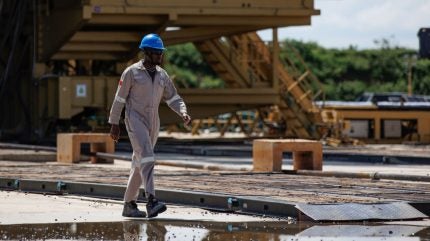
After a nearly twenty-year wait, Uganda is set to start commercial crude oil production. In a recent report, the International Monetary Fund (IMF) predicted the economy would grow 10.8% due to the burgeoning oil business in the 2025/2026 fiscal year, up from a projection of 6.2% in the previous period.
“Growth is expected to strengthen, boosted by the start of oil production, which will make (a) lasting improvement (to) the fiscal and current account balances,” according to the IMF report.
The production push consists of fourteen oil fields in the Lake Albert region of Western Uganda and a heated oil pipeline that would link the country’s oil fields to Tanzania’s Indian Ocean port of Tanga. The investment in the country’s oil fields will reach an estimated total of $15bn.
An uphill battle
While oil reserves were discovered in 2006, efforts to cash in on them have been delayed by tax disputes, accusations of corruption, alleged human rights violations and environmental concerns. The two companies behind the pipeline project, France-based TotalEnergies and China National Offshore Corporation (CNOOC), have come under heavy scrutiny from local and international human rights groups.
TotalEnergies has been sued twice in Paris by activist groups and individuals alleging land rights violations. Campaigners insist that the project is in direct violation of the Paris Climate Accord since it would endanger people’s shelter, food supply and the environment. The 1,443km East Africa Crude Oil pipeline would pass through seven forest reserves and run alongside Lake Victoria, which provides fresh water for 40m people.
In 2022, lawmakers in the European Union passed a resolution condemning plans to develop the oil industry in Uganda. It called on TotalEnergies to take time before starting the project to review an alternative route that would “better safeguard protected and sensitive ecosystems and the water resources of Uganda and Tanzania.”
Ugandan officials perceived the action as foreign meddling. At the time, Uganda’s deputy speaker Thomas Tayebwa said that anything “challenging [the projects’] approval is an affront to the independence of this house and we cannot take it lightly.”
Recent intimidation
As the prospect of oil-fueled prosperity lingers closer and closer, a US climate watchdog says there is a “climate of fear” surrounding the oil project on the shores of Lake Albert.
Climate Rights International published a report saying that “serious and widespread human rights abuses, environmental damage, and massive and unnecessary future carbon emissions” should prevent banks and insurers from funding oil projects in Uganda. This comes as Ugandan President Yoweri Museveni is expected to request more funding from China.
Locals interviewed in the report alleged that government troops had participated in forced evictions, destruction of fishing boats and violence.
Museveni has said that if anyone pulled funding, the government would “find someone else to work with.”



